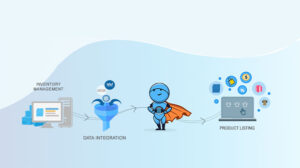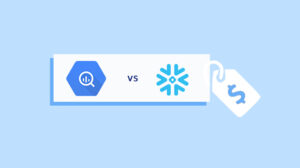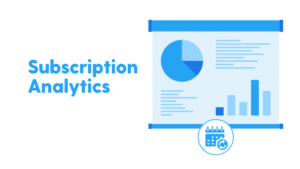It is not uncommon for D2C (Direct-to-Consumer) brands to complain to their web development agency about analytics tracking issues. D2C brands rely heavily on accurate analytics to make data-driven decisions and measure the performance of their marketing campaigns when inaccurate or incomplete analytics tracking can lead to incorrect assumptions and decisions, harming the brand’s performance.
Web development agencies that work with D2C brands should prioritize accurate analytics tracking to help their clients achieve their business goals and maximize the return on their marketing investment. With an analytics engineering partner, a development agency can offer its clients more robust and scalable data solutions to help them make more informed decisions and improve their overall performance.
Platform Migration
Migrating an eCommerce brand to a different platform can be a complex and challenging process with numerous potential risks. One of the most critical areas to consider during the migration is Google Analytics tracking, which is crucial for monitoring website traffic and user behavior.
One of the most common problems eCommerce brands encounter when migrating to a different platform is data loss or corruption. This can occur when the new platform is incompatible with the existing Google Analytics tracking codes or when data is not properly transferred during migration. This can lead to gaps in data and make it difficult to track user behavior or make informed decisions about website optimization.
Another potential issue is incorrect user behavior tracking, leading to inaccurate data and flawed decision-making. For example, if the new platform is not configured correctly, tracking important metrics such as conversion rates, bounce rates, or time on the page may not be possible. This can make optimizing the website and improving the user experience difficult, leading to decreased sales and revenue.
Additionally, if the new platform is not set up to track eCommerce transactions correctly, it can cause revenue attribution problems, making it challenging to identify which channels and campaigns drive sales. This can make it challenging to optimize marketing efforts and drive revenue growth.
Expert Recommendation
Partnering with an analytics engineering partner during a platform migration can help web development agencies ensure that their Google Analytics tracking is accurate and that the data collected is complete and actionable, enabling them to make better business decisions.
- Audit and Assessment: The partner can thoroughly audit the existing Google Analytics implementation to identify issues impacting the migration. This can include evaluating the existing tracking code, data quality, and measurement configuration.
- Tracking Implementation: The analytics engineering partner can assist with implementing the Google Analytics tracking code on the new platform, ensuring that it is set up correctly and that all relevant data is being tracked. They can also help with custom event tracking if required.
- Data Migration: The partner can help migrate historical data to the new platform and maintain data integrity.
- Testing and Validation: The partner can help with testing and validating the new implementation, ensuring that all data is being recorded accurately and that there are no issues or data gaps.
- Ongoing Support: An analytics engineering partner can provide ongoing support, monitoring, and maintenance to ensure the tracking functions correctly and provide insights and recommendations to improve performance.
Universal Analytics (GA3) to GA4 Migration
Migrating an eCommerce brand to GA4 through Google Tag Manager (GTM) can present a few unique challenges. Here are a few problems that may arise during the migration process:
- Limited GTM container size: GA4’s measurement model is event-based, requiring a larger number of tags and triggers than UA’s pageview-based model. This may result in GTM containers that exceed the maximum size allowed by GTM. eCommerce brands should work with a specialist to ensure their GTM container is optimized for GA4 and does not exceed the maximum size limit.
- Lack of GTM templates: GA4 is a relatively new platform with few GTM templates currently available. This means that eCommerce brands may need to create custom tags and triggers for their GA4 implementation. This can be time-consuming and may require additional expertise in GTM and GA4.
- Changes to data layer variables: GA4 uses a different data model and variable naming conventions than UA, meaning that eCommerce brands will need to change their data layer variables. This can be particularly challenging for eCommerce brands with large and complex websites, where identifying and updating all data layer variables may be a significant undertaking.
- Complex configuration requirements: GA4 requires more complex configuration and setup than UA. eCommerce brands may need to implement additional tags and triggers to ensure their data is accurately tracked and reported in GA4. This may require additional development resources or consulting with a specialist.
To mitigate these problems, eCommerce brands should work with a specialist analytics engineering partner, like Saras Analytics, who is familiar with GTM and GA4. This specialist can help ensure that the GTM container is optimized for GA4, all necessary tags and triggers are implemented, and the data layer variables are properly configured.













